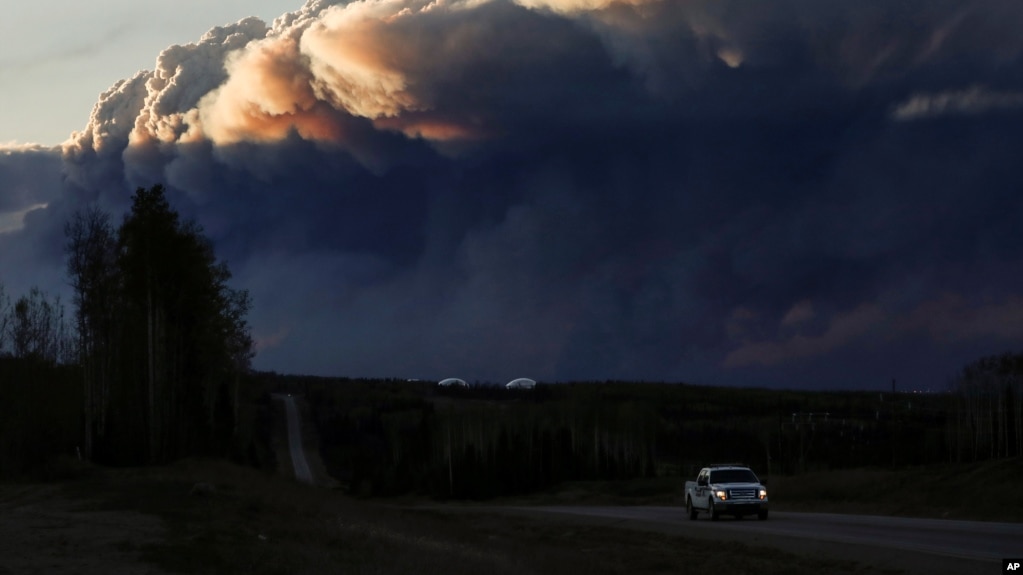At sunrise Friday, 1,500 vehicles began driving from camps north of Fort McMurray, Alberta to Canadian cities and towns further south.
The drivers and passengers are escaping a raging forest fire that started on May 1 and quickly surrounded Fort McMurray.
One driver told the Reuters news service the city looked like “a war zone.”
When the wildfire started, many people fled their homes and moved to shelters set up north of the city.
That is where workers with jobs in Canada’s oil industry live.
But the work camp is not equipped to serve thousands of people for an extended period.
In all, over 80,000 people left Fort McMurray because of the fire.
Canadian officials say at least 1,600 homes and buildings have been damaged or destroyed.
People are also leaving the area north of Fort McMurray by airplane. About 8,000 people flew to the cities of Calgary and Edmonton on Thursday after roads were not safe enough for travel. Officials hope a similar number can leave on Friday.
Police are moving cars and trucks along the main road through Fort McMurray in groups of 50. Once vehicles reach a point 20 kilometers south of the city, a new group begins its trip.
The wildfire covered an area of about 75 square kilometers on Tuesday. By Thursday, it had grown to 850 square kilometers. The fire can be seen from the International Space Station. Its smoke has reached as far south as New Orleans, just north of the Gulf of Mexico.
It is not yet known how the fire started, but it has moved quickly because of winds, warm weather and dry conditions.
Over 1,000 firefighters have been deployed to the area. They are working with helicopters, heavy equipment and airplanes that can carry water and drop it on the fire.
But the Alberta manager of wildfire prevention said only a long period of rain will put out the fires.
I’m Dan Friedell.
Dan Friedell wrote this story based on reporting from the Associated Press, Canadian Press and Reuters. George Grow was the editor.
What would you bring if you had to leave your home without any notice? We want to know. Write to us in the Comments Section or on our Facebook page.
_______________________________________________________________
Words in This Story
evacuate – v. to remove (someone) from a dangerous place
raging – adj. very wild and violent



